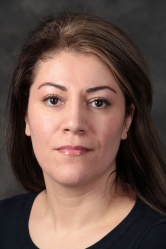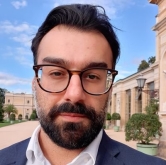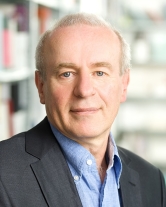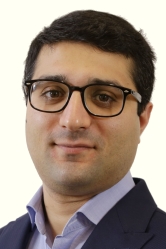What would be the consequences of a revolution in Iran?
11 January 2023 3:00 pm CET
Sara Bazoobandi, Ali Fathollah-Nejad, Stephanie Fenkart, Heinz Gärtner, Mahdi Ghodsi
In cooperation with The International Institute for Peace (IIP).
Venue
This is an online event via Zoom. Please register using the link below: https://us06web.zoom.us/webinar/register/WN_3j0GAopVT9a_sewETdcjjw
Description
Following the killing of Mahsa (Zhina) Amini in Iranian police custody, Iran is experiencing the largest protest movement for basic human rights since the founding of the Islamic Republic in 1979. Many experts see this movement as a revolutionary moment that could eventually lead to a change in the authoritarian political system. The ruling regime has oppressed society and deprived women of their basic rights, among them the right to choose their clothes. Politics has prioritised ideology over social needs and national interests. This has also translated into an isolated economy facing sanctions pressure, and a population suffering severe economic hardship.
Please REGISTER for the Zoom link here.
Our panel discussion, jointly organised by the Vienna Institute for International Economic Studies (wiiw) and the International Institute for Peace (IIP), will address two main issues. First, we will discuss the background to the current momentous events, and consider how likely they are to lead to a change in political regime in Iran. Second, we will address the potential consequences of such a revolution at the centerpiece of the discussion.
Moderator: Stephanie Fenkart is Director of the International Institute for Peace (IIP) since 2016. She has an MA in Development Studies from the University of Vienna and an MA in Human Rights from the Danube University, Krems. She is furthermore a member of the Advisory Committee for Strategy and Security Policy of the Scientific Commission at the Austrian Armed Forces (BMLV). She is also a board member of the NGO Committee for Peace, Vienna.
Sara Bazoobandi is a Marie Curie Fellow at the Institute for Middle East Studies, German Institute for Global and Area Studies in Hamburg. She is also a nonresident senior fellow at the Atlantic Council, nonresident fellow at the Arab Gulf States Institute in Washington, and an associate research fellow at Italian Institute for International Political Studies.
Ali Fathollah-Nejad is a German–Iranian political scientist focusing on Iran, the Middle East, and the post-unipolar world order. He is an Associate Fellow with the American University of Beirut’s Issam Fares Institute for Public Policy and International Affairs (AUB-IFI), where he publishes a monthly brief entitled Iran in Focus. He is the author of a 60-page Brookings study entitled "The Islamic Republic of Iran Four Decades On: The 2017/18 Protests Amid a Triple Crisis", where he suggested the start of a long-term revolutionary process in Iran.
Heinz Gärtner is a lecturer in the Department of Political Science at University of Vienna and at Danube University. He was academic director of the Austrian Institute for International Affairs. He has held various Fulbright Fellowships and the Austrian Chair at Stanford University. He was Austrian Marshall Plan Foundation Fellow at the Johns Hopkins University in Washington DC. Gärtner also chairs the Strategy and Security advisory board of the Austrian Armed Forces and the Advisory Board of the International Institute for Peace (IIP) in Vienna. He has published widely on international security, nuclear non-proliferation and disarmament, US foreign policy, geopolitics, Iran, and the Middle East.
Mahdi Ghodsi is Economist at wiiw. His research focuses on international trade, international trade policy, non-tariff measures, industrial policy, foreign direct investment, global value chains, environmental technologies and innovation, political economy of sanctions, and the Iran economy. He is a member of the editorial board of International Economics. He holds a Ph.D. in economics from Università Cattolica del Sacro Cuore - Sede di Milano and a second Ph.D. in international economics from the Faculty of Economic Sciences, University of Warsaw.



